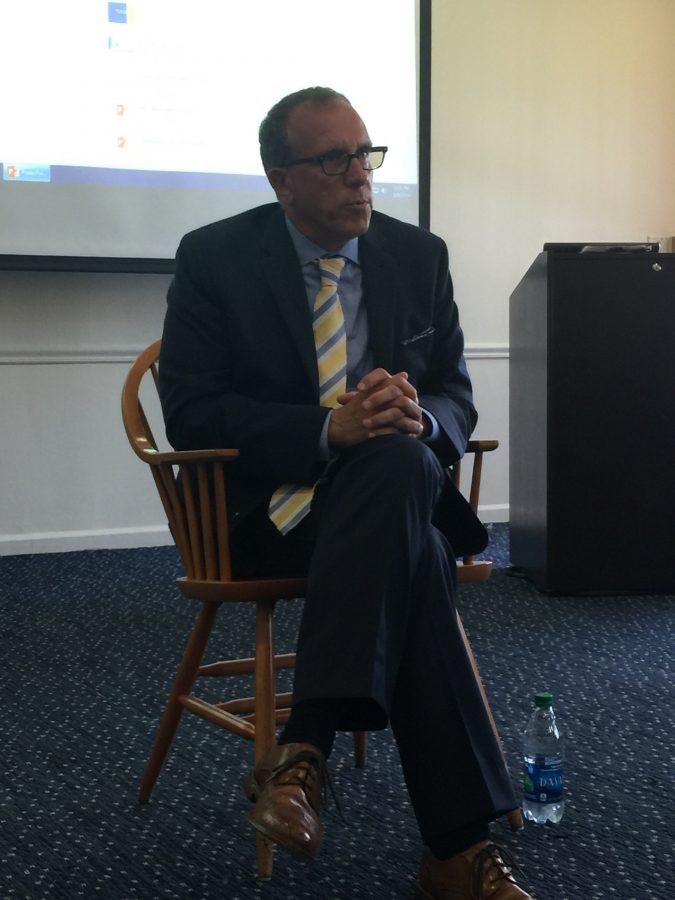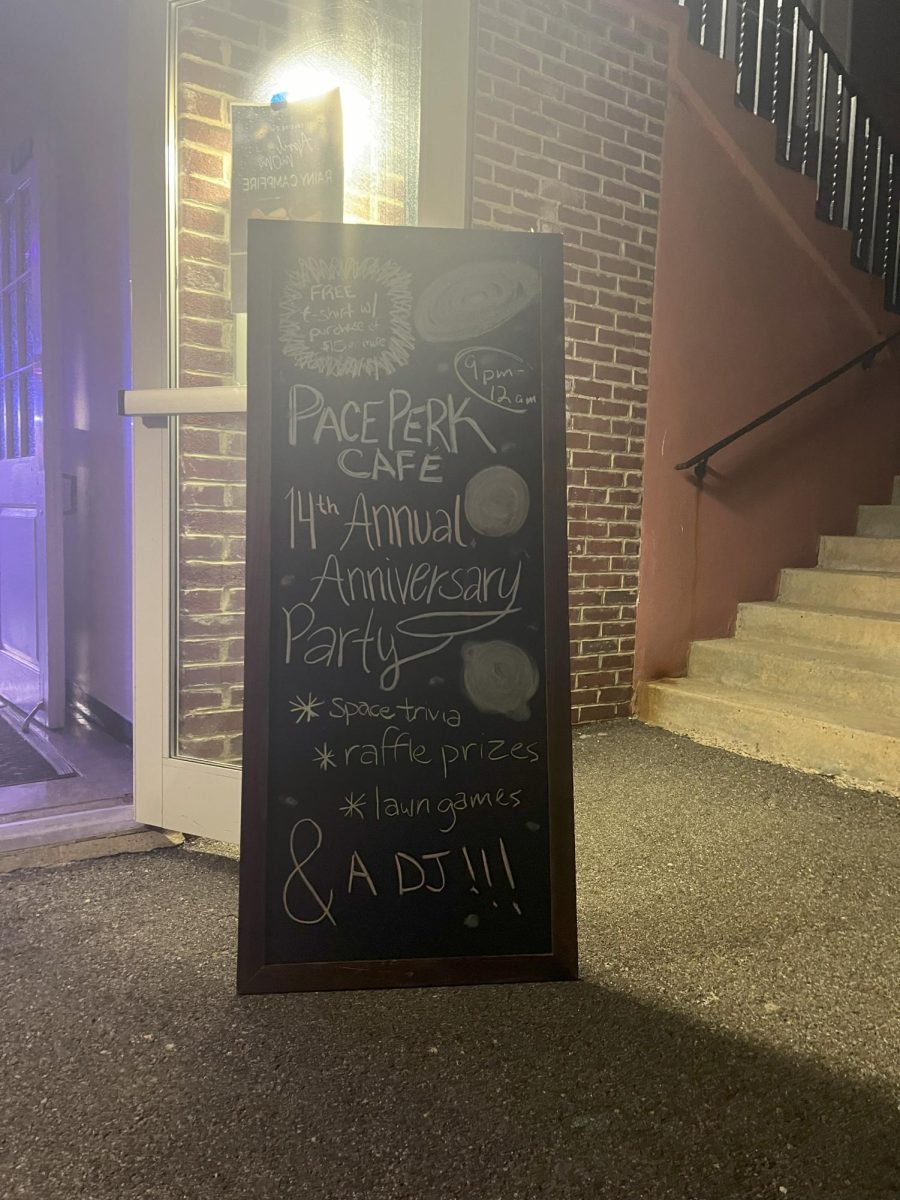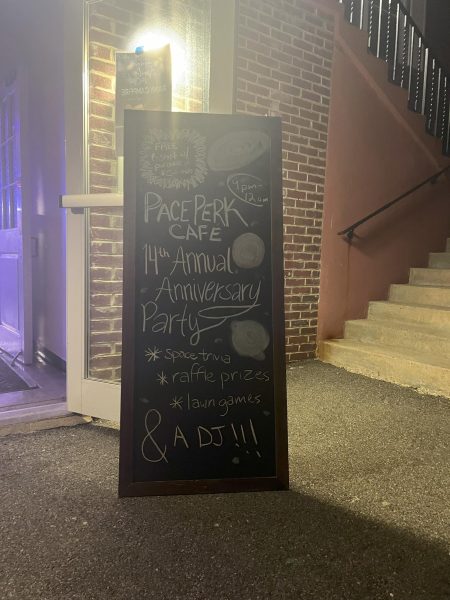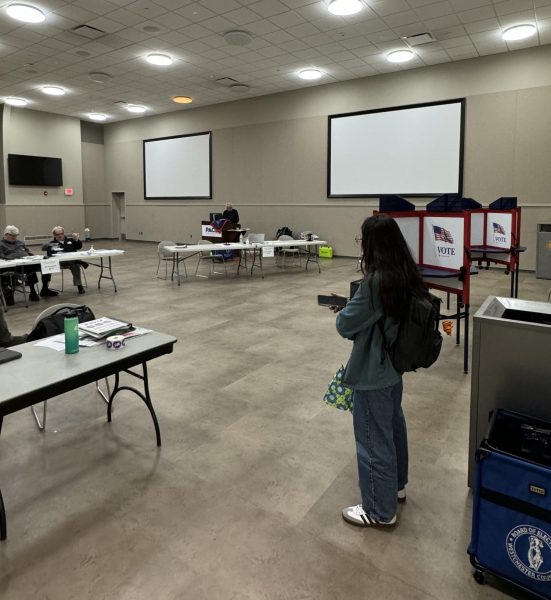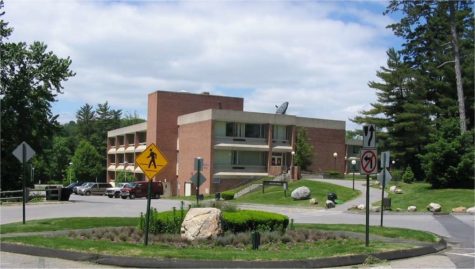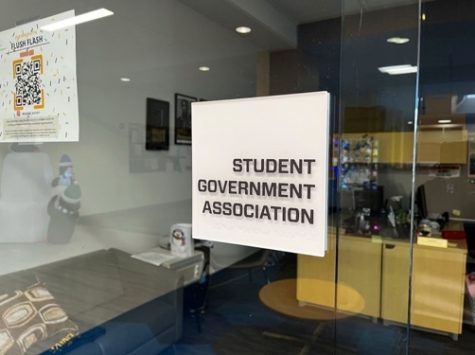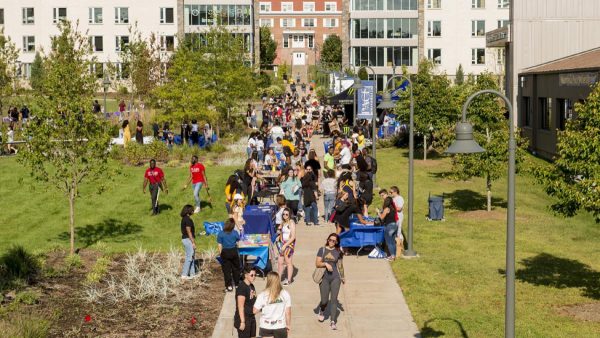The Search for The CIO: Candidate Michael Kubit
September 13, 2016
The Search Committee for the Chief Information Officer and Vice President (CIO/VP) position hosted an open forum with their last candidate, Deputy Chief Information Officer for Information Technology Services at Case Western Reserve University, Michael Kubit, last Thursday in Butcher Suite.
Kubit said he is right for the CIO position because he has worked in higher education for more than 30 years. Another reason is that one of the expectations of the new CIO is building Pace’s research profile, which Kubit has had experience doing in his current role.
“The reason why I work in higher education is the incredible sense of mission. I receive an incredible sense of fulfillment. To me there is no greater transformation that someone experiences in their life then the time they enter college as a freshman, to the time they graduate,” Kubit said.
Kubit said the role of the Information Technology department is supporting the mission of the institution, which is teaching, learning, and research. He also said that trust is a key component to any successful organization.
“The IT staff has to have trust and confidence in its leadership to be able to ensure we are moving the organization in the right direction. You, as our colleagues, have to have confidence that IT is providing the types of solutions that you require [in order] to do your jobs every day,” Kubit said.
If given the role, Kubit said that his biggest key to improving Pace’s IT team would be understanding the institution’s culture.
“I would hit the ground listening, and talk to as many people in the first few months as possible to really understand where are the challenges, the opportunities, where is there a low hanging fruit, and where are the needs, and can the institution use my skills and experience to move those forward,” Kubit said.
Kubit said that the key to making the level of technology up-to-date all across campus would be getting the administration to see that the value in upgrading the technology would hold everywhere, and seeing if the administration had adequate resources available to do so.
Kubit was also asked about the possibility of improving Pace’s Wi-Fi. Kubit said that he believes the community will always use all the available bandwidth because of the growing number of devices they use.
“One of the things we’re seeing is that even as few as two years ago students were bringing two to three devices with them to campus, and now what we’re seeing is five to seven devices per student to campus,” Kubit said.
However, at Case Western Reserve University, Kubit has been able to strengthen the Wi-Fi by doing a port utilization analysis, which he used to discover his institution was only utilizing 23% of the network ports, letting him use the remaining ports to support the wireless network.
Kubit entered the IT field through music, after gaining an interest in the way the sound system worked. During his time as a musician, he played covers of classic rock bands like Pink Floyd and Genesis.
“What’s funny is one of the things I’ve noticed from my collogues across the country is that if you talk to IT professionals it’s pretty fascinating to find how many of them started in IT through music,” Kubit said. “There’s a lot of conversations today about the importance of music in elementary education and high school. It is critically important, and I think there has been some research lately about a correlation between excelling in STEM and introduction to music at an early age.”
Members of the audience said that they feel as though Kubit has a good vision for Pace and should be elected CIO because of his leadership skills.
“[His presentation] was very compelling. He has a good strategic idea; I love his collaborative, he was looking to get everyone on board and that he has mechanisms in place to try and understand the community,” Associate University Librarian, Steven Feyl, said.

